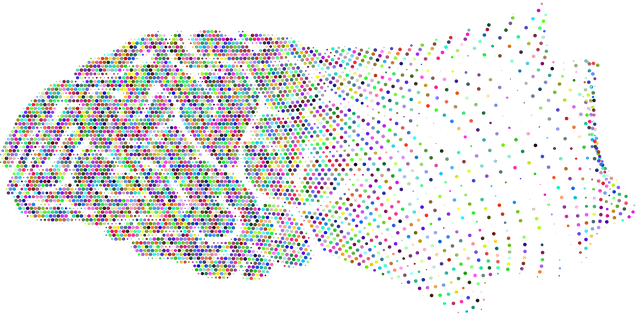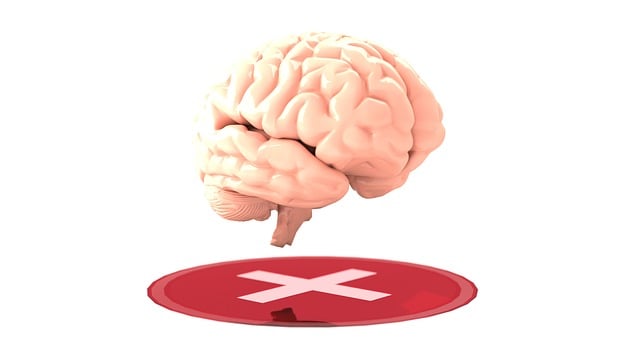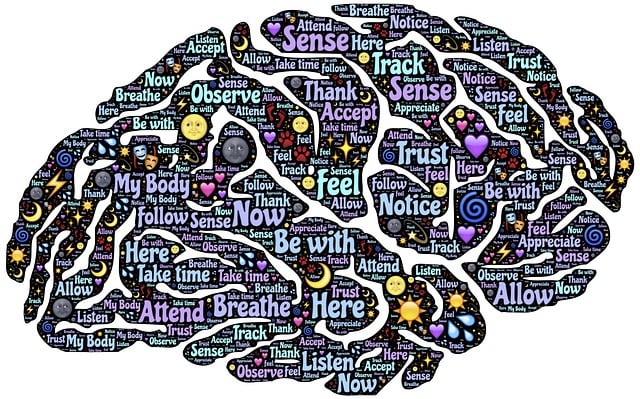Mental health literacy is a powerful tool in improving communication in Denver couples therapy, reducing stigma and empowering individuals to seek help early. A tailored education program addressing specific couple dynamics, such as newlyweds or long-term partners, can provide personalized strategies for conflict resolution and intimacy building. Integrating therapeutic techniques with interactive sessions fosters open dialogue and enhances well-being. This holistic approach, combined with engaging learning experiences like role-playing and multimedia, revolutionizes traditional therapy formats. Rigorous evaluation methods measuring behavioral changes and relationship satisfaction ensure the program's effectiveness in Denver couples communication issues therapy.
Mental health education programs play a pivotal role in fostering well-being, especially for couples navigating communication issues in Denver. This article delves into the strategic design of such programs, emphasizing literacy as a cornerstone for success. We explore tailored curriculum development, focusing on communication skills and therapy techniques, to engage Denver couples effectively. Practical implementation strategies are discussed to enhance learning experiences, while measurement methods ensure impact assessment on communication-related challenges specific to this demographic.
- Understanding Mental Health Literacy: The Foundation of Effective Program Design
- Identifying Target Audiences: Customizing Education for Denver Couples
- Curriculum Development: Integrating Communication Skills and Therapy Techniques
- Practical Implementation Strategies for Engaging Learning Experiences
- Measuring Success: Evaluating the Impact of the Program on Communication Issues
Understanding Mental Health Literacy: The Foundation of Effective Program Design

Mental health literacy is a cornerstone for designing effective program interventions, especially when addressing issues like communication problems in Denver couples therapy. It involves understanding mental health conditions, their causes, symptoms, and available treatments, empowering individuals to make informed decisions about their well-being. By fostering mental health literacy, programs can reduce the stigma associated with mental illness, encouraging early intervention and improved help-seeking behaviors.
This foundation is crucial for tailoring therapeutic approaches, such as those focusing on self-esteem improvement and emotional regulation strategies. For instance, Denver couples communication issues therapy can benefit from increased mental health literacy among participants, allowing them to better navigate relationship challenges rooted in mental illness. Thus, program design should prioritize education and awareness to create a supportive environment where individuals feel comfortable discussing their experiences and seeking appropriate support.
Identifying Target Audiences: Customizing Education for Denver Couples

In designing a mental health education program tailored to Denver couples experiencing communication issues, it’s crucial to pinpoint specific groups within this demographic. This may include newlyweds navigating marital expectations, long-term partners dealing with evolving roles, or those facing challenges due to differing cultural backgrounds. By segmenting the audience, educators can create personalized content that resonates with various struggles. For instance, a module on conflict resolution strategies could be particularly beneficial for couples where one partner struggles with assertiveness, while another might benefit from workshops focused on rebuilding intimacy after periods of estrangement.
Customizing education for Denver couples involves integrating therapeutic techniques into interactive sessions. Encouraging open dialogue, fostering empathy, and teaching effective communication skills can significantly contribute to addressing underlying issues. Moreover, incorporating confidence-boosting activities and burnout prevention strategies tailored to healthcare providers in relationships—a relevant consideration given the demanding nature of their work—can enhance participants’ overall well-being. Such a targeted approach ensures that each couple receives valuable tools to improve their mental health and strengthen their bond.
Curriculum Development: Integrating Communication Skills and Therapy Techniques

Curriculum development for a comprehensive mental health education program must seamlessly integrate communication skills and therapy techniques. Effective programs understand that addressing Denver couples’ communication issues is paramount in fostering healthy relationships and managing anxiety relief. By combining theoretical knowledge with practical, evidence-based strategies, participants gain valuable tools to navigate personal challenges.
Mental wellness coaching programs development should focus on creating interactive sessions where learners can practice active listening, assertiveness training, and conflict resolution skills. These techniques are not only crucial for individual mental health but also play a significant role in couples therapy. By incorporating therapeutic modalities alongside communication skills, the program ensures a well-rounded approach to mental health education, catering to diverse needs and promoting holistic healing.
Practical Implementation Strategies for Engaging Learning Experiences

Integrating engaging learning experiences is vital for an effective mental health education program, especially when addressing sensitive topics like Denver Couples Communication Issues Therapy. Interactive workshops and group discussions can foster a safe space for participants to share their experiences and insights, revolutionizing traditional lecture-style sessions. For instance, role-playing scenarios allow individuals to practice new communication skills in real-time, enhancing comprehension and retention.
Leveraging multimedia elements, such as the Mental Wellness Podcast Series Production, offers diverse learning styles an advantage. Podcasts can introduce unique perspectives and personal narratives, making complex concepts more accessible and relatable. Additionally, incorporating self-care practices like Self-Care Routine Development for Better Mental Health provides practical tools participants can implement immediately. These strategies complement theoretical knowledge, ensuring the program’s impact extends beyond the classroom, ultimately contributing to burnout prevention among healthcare providers.
Measuring Success: Evaluating the Impact of the Program on Communication Issues

Measuring the success of a mental health education program, particularly one focused on communication issues in Denver couples therapy, involves rigorous evaluation methods. The impact of such programs extends beyond mere knowledge transfer; it encompasses behavioral changes and improved relationships. By employing qualitative and quantitative tools, practitioners can assess the effectiveness of the curriculum. This includes pre- and post-program surveys to gauge participants’ understanding of communication dynamics and their ability to apply learned strategies.
For instance, evaluating the success of a Denver couples therapy program might include tracking improvements in conflict resolution skills, emotional expression, and overall relationship satisfaction. The integration of resilience-building techniques, mindfulness meditation practices, and cultural sensitivity in mental healthcare can further enhance these outcomes. These aspects are crucial for fostering healthier communication and ensuring that the program’s benefits persist over time.
Mental health education programs, as highlighted in this article, are powerful tools for improving Denver couples’ communication and addressing underlying therapy issues. By understanding mental health literacy, customizing content for specific audiences, integrating effective curriculum, and employing engaging implementation strategies, these programs can significantly enhance relationships. Measuring success through evaluation ensures the program’s impact is tangible, allowing for continuous improvement and a healthier, more connected Denver community.














